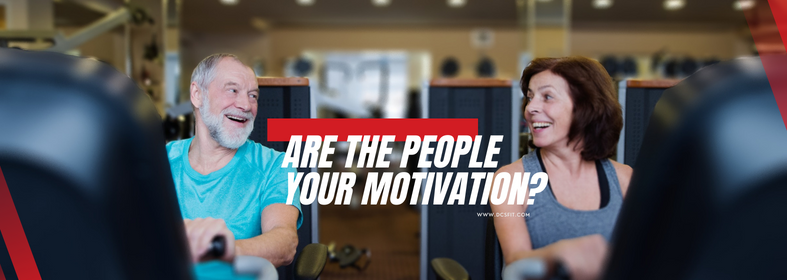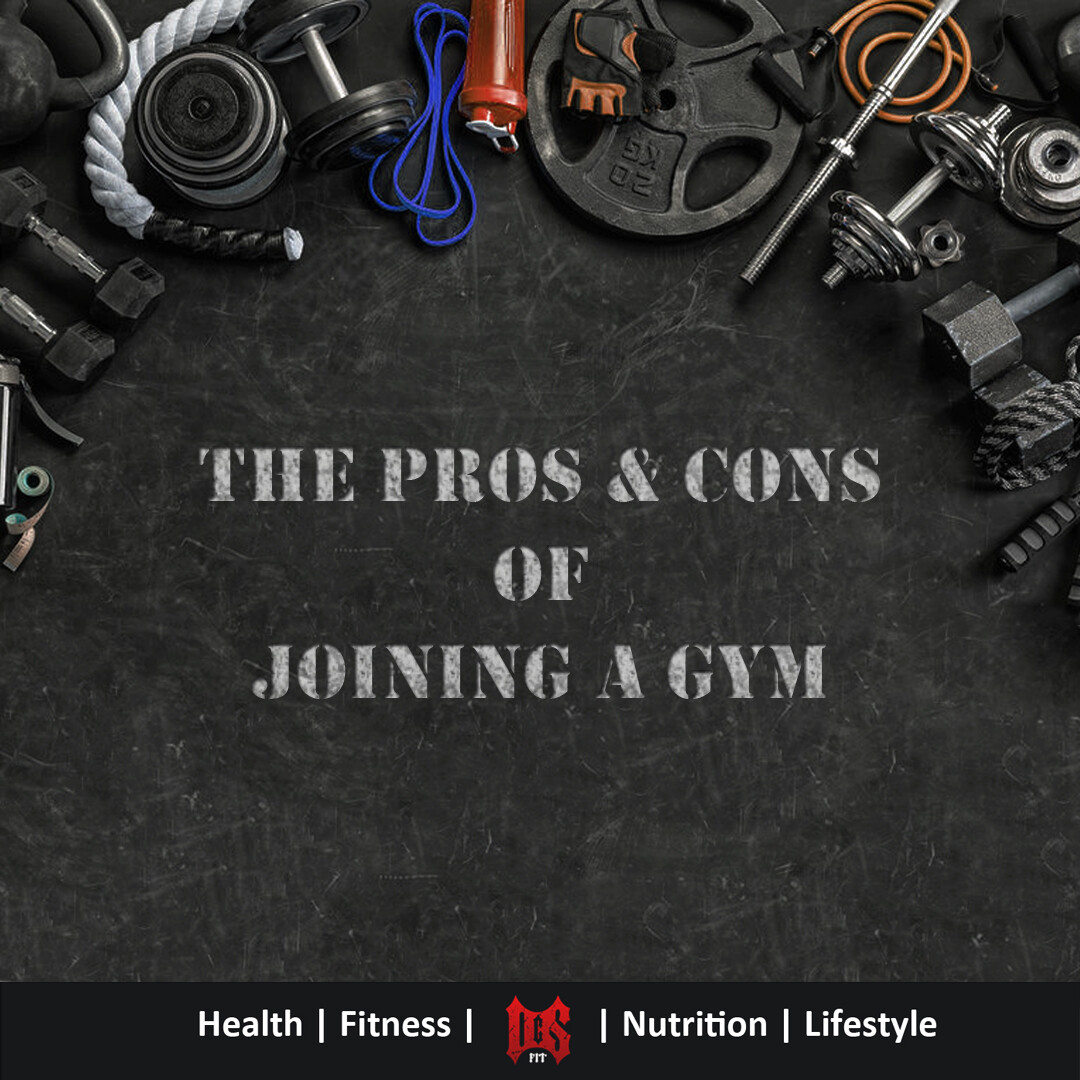HOW DO I MOTIVATE MYSELF TO EXERCISE?
You know exercise is beneficial. You want to do it. But when it comes to it, often you find you have other priorities, a lack of energy or zero motivation.
Why is that?
And how do you get over it?
Prefer Video or Audio?
Watch This!
Before getting to the details, it is worth noting that working out and training (which are not the same thing) are inherently uncomfortable.
If the process wasn’t challenging, then your body’s structure and systems have no reason to develop or improve.
So yes, training is hard. And anything hard requires motivation to take on in the first place.
After all, we wouldn’t do anything that we knew was going to be uncomfortable if there was nothing to be gained from it.
So, how do you motivate yourself?
Ultimately, motivation is driven by a desire for an outcome. It is the lack of that outcome that makes us care that we are not motivated, not the lack of working out itself. So, understanding why the results are important is the key to unlocking your motivation.
There are many things in life you don’t do. But you don’t beat yourself up or feel frustrated by it.
You may not practice chess every day. But if chess isn’t something you are passionate about, that wouldn’t even enter your thoughts.
A potential Olympic ice dancer understands that time on the ice is the key to success. So daily practise regardless of discomfort becomes the norm. But it’s not the practice that motivates them, it’s the concept of competing at the highest level and on the biggest stage that drives them to continue.
This leads us to a key question.
What benefit will you receive from the workouts?

If the answer is, “nothing” or “I don’t know” then there is nothing that will motivate you. Nor is there any reason for doing it.
Too often we are so wrapped up in the feeling of frustration and self-depreciation, that we miss the bigger picture.
Taking time to reflect on why we care about this (and what we think that driver is will rarely be the true reason) is usually the key to unlocking the motivation you crave.
It is extremely common to feel that reflection time is just wasting more time. And it can even fuel further guilt.
“I don’t have time to think about why I’m not motivated, I could be training right now”.
Author’s Note
This was a common issue when I ran my own gym.
The biggest issue, for many clients who would come to see me, was their mindset.
They clearly believed that the answer was to have me tell them what to do and at least they would get an hour or so of productive training completed. And using the time to uncover mental barriers or obstacles being caused by other elements within their life would be a waste of time.
And whilst there was a short-term benefit to that, the reality is, those who failed to address the underlying frustrations saw them grow.
If you’ve ever hired a Personal Trainer, did you ever have to cancel a session?
If so, the first time you did it was probably for something that felt major and absolutely necessary. But as soon as you break that seal, you realise how easy it is to do. And now the pain of your daily frustrations or your feeling of exhaustion and the idea of the discomfort of the training start to win more frequently and the re-scheduling or cancellations become more frequent.
Motivation is strengthened through progress.
It is a learned habit.
So, ensuring you understand where that motivation is coming from is key to ensuring it stays strong. Meaning taking the time for reflection is not a waste of time.
In fact, taking that time to ensure your head is in the right place can be the difference between long-term success and perpetual frustration.
Therefore no longer having the distraction of a gym (suggesting that training should be happening) has been instrumental in my shift from personal training to directional fitness coaching. And it is something worth keeping in mind when you feel unmotivated and frustrated with your lack of progress.]
Motivation isn’t Always About Results
Sometimes there is motivation in the action itself.
Though that motivation still comes from a personal need that is being filled.
For example, perhaps you train with other people. You are going to a class, or you are heading to a gym where you know there will be others you enjoy being around.
And if you are craving company, that could be your reason for going.
The workout is simply the method for getting you amongst other people and so reminding yourself of that may be all the motivation you need.

Connecting with Why Change is Important to You
But most people start down the path of exercising due to a desire to change something about themselves.
Whether that be to look better, feel better, move better, or stave off ill health or degradation from ageing.
No one walks into a gym or starts working out by accident.
The article [Too Much Work to Workout] looked at the question “what is it that you are working for?”
And the concept of reviewing your priorities and core values is covered in this video on What to do when you are too busy to work out.
Once you understand what is truly important to you and the effects of your actions on these priorities, then you can mentally compare your current actions and choices to that outcome.
You have the choice between heading to the gym for a workout or heading to the couch to watch a movie.
Having targets in the form of timescales can also be useful to ensure you don’t procrastinate and fall into the “do it tomorrow” loop.
But by phrasing the question this way, the focus is on the time. Not the result itself; what it means or how you feel about it.
You are less likely to enjoy the journey.
And it can only lead to disappointment.
Why the couch wins so frequently
If you have no emotional attachment to the purpose of the workout. It’s just something you want, but you haven’t connected it as one of your highest priorities in life and you haven’t connected its significance to anything that does have that level of importance. Then you’re going to choose the couch every time.
Because that is the path of least resistance.
If, however, you have previously reflected on your life goals and priorities and you concluded that improved fitness is of the highest priority as it is the driving force behind all your current life goals and aspirations, then by connecting to that and comparing that to a night on the couch you will now make an informed decision.
The couch may still win from time to time.
Because you may conclude that you’ve been overdoing it and this is the best thing for you to do at that moment to avoid burnout, illness or exacerbating a strain.
But in the main, you will be driven by the thought of your greater purpose.
Which, if truly significant, will be all the motivation you need.
Do You Regret Your Decisions?
A good way to assess if you are getting this right is to reflect on moments of regret.
If you choose the couch and then regret it the next day, you’re not making choices for yourself.
You have bad habits that you are defaulting to.
But at least now you know what to address.
If, however, you make your decision and continue to feel good about it when the moment has passed. Then it was most likely the right decision for you.

One caveat here is if you have spent a large portion of your life convincing yourself you prefer things as they are by publicly stating them to the point you have literally brainwashed yourself into believing them.
An example of this would be someone who publicly exclaims how much they ‘love their curves’, even though they are morbidly obese, feel physical discomfort daily and often suffer from frustration or even pain during basic activities.
Are you Forcing Yourself?
That said if you have chosen a method for improvement that you loath.
Perhaps you hate going to the gym, but you keep pushing yourself to do it because you feel you are supposed to.
Ultimately, you’ll convince yourself not to go.
You may continue to regret your choices, but you are unlikely to change your habits because the change is too uncomfortable or unappealing.
So, your subconscious mind will continue to find justifications for avoidance.
If this is the case, it is worth addressing the path you have chosen to your destination.
A Consistent Solution is Best
This video, on whether playing sports is more beneficial than going to the gym, covers this in detail.
Watch This
for More Info!
More people tend to stick to a sporting activity they enjoy than a fitness routine.
So, if you hate going to the gym, but can find a sport you enjoy playing, then the solution is right there.
You Can’t Buy Motivation
Some people feel they must invest in motivation, by hiring a Personal Trainer or a Personal Fitness Coach.
If this is just for habit-forming purposes or because you have difficulty focusing on one path, then that could be a worthwhile investment.
But no one is going to magically make you want to do something you currently loath just because you paid them.

They might help you find options you do enjoy.
But that is returning to the alternative path.
If you go down the route of hiring a drill sergeant, you are still the one paying for this and can back out any time.
And when something is causing you discomfort, you will, eventually, find a way to justify that.
Adjust to Your Current Situation
All that said, if you are just feeling a bit flat, then identifying the reason for that becomes the key.
A stressful day that is playing on your mind may be overcome with a pair of headphones and some uplifting music (particularly music that invokes positive memories).
Lack of sleep and overwhelm may allow you to accept you cannot perform at your best.
But you can work on something that has been bugging you for a while (tight calves, restricted shoulders etc) that will benefit you in the long run.
And getting a little blood flowing before cutting the session short and heading for an early night may be the ideal solution.
Purpose Breeds Passion
Not all workouts have to hit the heights of perfection.
But if you need to motivate yourself and continually fail to do so, then there is an emotional disconnect with the goal that is driving you. Or you have chosen the wrong method for improvement.

How Do I Motivate Myself
to Exercise? by Mark Tiffney
In which case, taking some time to reflect could be all that is needed.
We are not driven by activity but by the outcomes of our actions.
This is worth remembering when you tell yourself you don’t have time for reflection or working on your self-awareness. As going through the same issues time and again, without ever getting to the root of why that is, is a much bigger waste of your time (and more frustrating).




Leave A Comment